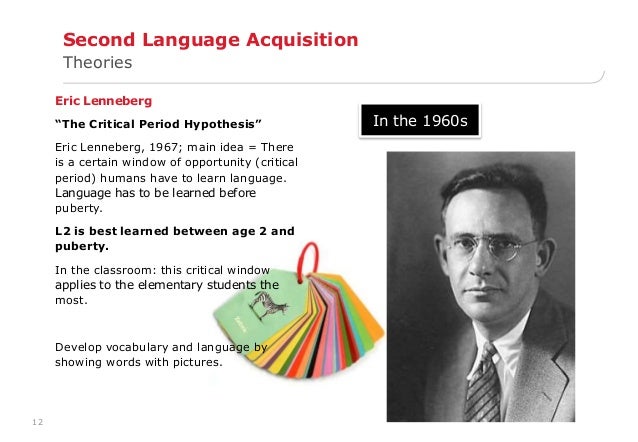The critical period hypothesis is the subject of a long-standing debate in linguistics and language acquisition over the extent to which the ability to acquire language is biologically linked to age.
In 1967 Eric Lenneberg released a widely influential book based on his research popularizing the notion that if language is not learned before an early age – usually estimated at 4 to 6 years – a child’s ability to learn any language becomes greatly compromised, or disappears altogether. Though this research has been advocated for and debated against by linguistic giants such as Noam Chomsky and Steven Pinker, the evidence from Lenneberg and others is flimsy, draws extensively from widely divergent examples of feral children, and is largely theoretical.
This hypothesis was originally proposed by Penfield and Roberts (1959) and followed up by Lenneberg (1967) who suggested that it could be extended to the second language acquisition. Subsequent studies all found the same result that second language learning performance correlates negatively with the age at which the learning begins prior to puberty.
Key Points
- Lenneberg theorized that the acquisition
of language is an innate process determined by biological factors which
limit the critical period for acquisition of a language from roughly two
years of age to puberty.
- Lenneberg believed that after lateralization
(a process by which the two sides of the brain develop specialized
functions), the brain loses plasticity.
- Lenneberg claimed that lateralization
of the language function is normally completed at puberty, making post
adolescent language acquisition difficult.
